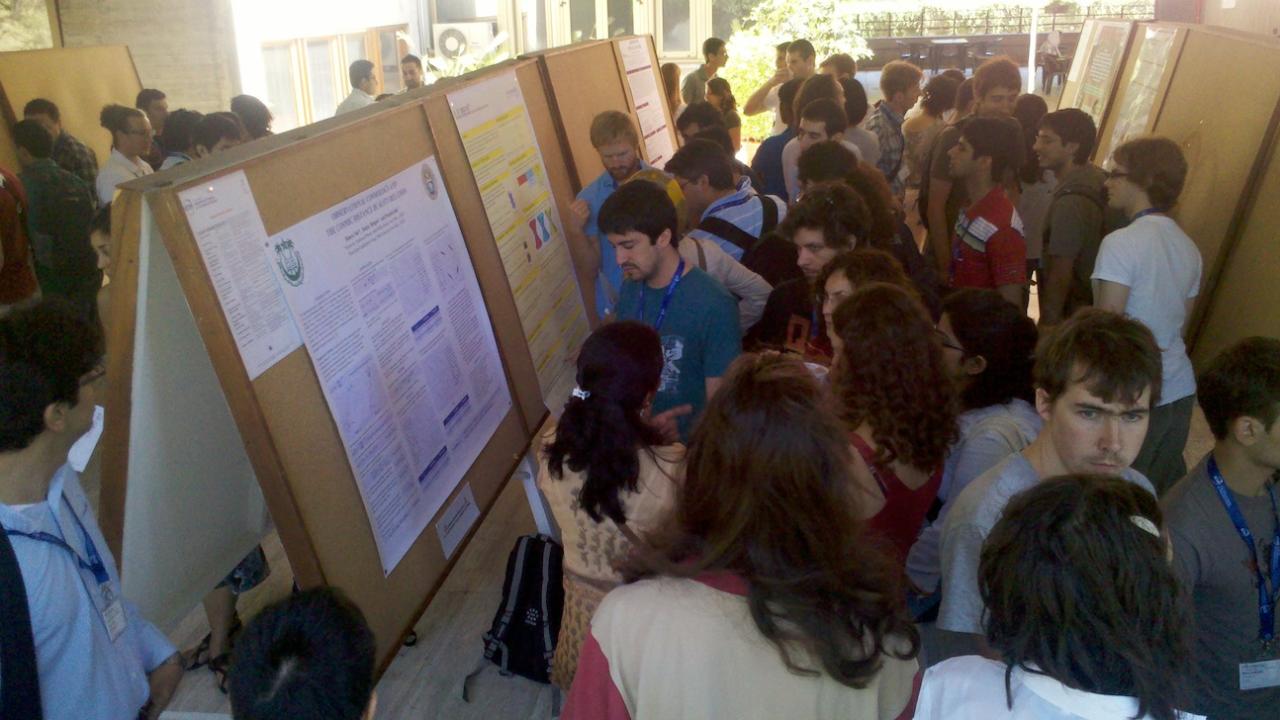
Just as the Universe is expanding, so is the field of cosmology growing. Cosmology is the study of the whole Universe -- the big and the small, the close and the far. ICTP is currently hosting its two-week cosmology summer school, which has drawn 210 participants from around the globe.
The summer school is about understanding the Universe, from dark matter to dark energy to gravity to galaxy clusters. It is also designed to expose new cosmologists from all over the globe to new research in the expansive field of cosmology, said Misao Sasaki of Kyoto University. Sasaki is one of the key lecturers for the summer school and an expert in cosmic inflation -- the accelerated expansion of the early Universe. "I see all these very brilliant lecturers, so they [the participants] should learn quite well," said Sasaki. He also added that the students ask a lot of questions and hoped they will find new research directions to work on.
Participants are receiving an overview of what could be called the "standard model" of cosmology, said school participant Remya Nair of the Centre for Theoretical Physics at Jamia Millia Islamia in New Delhi. "Here I get a flavor of it," said Nair, "because there are a lot of things I don't know, even naively." Nair said she is looking for violations of assumptions about the relationship between the distances of light and space using existing data on galaxies and supernovae.
Nair was one of several students who displayed her research during a poster session. Students also give short talks on their research as part of the school's activities. "I just want to see what the data infers," Nair said. "Is it really telling us that the universe is accelerating? Is it really telling us that the universe is homogeneous at large scales? Or is there evidence for a violation of these things?"
The field is particularly exciting right now, Sasaki said, because more data is continuously emerging that cosmologists can use to better understand the Universe. Much of the data in particular is on fluctuations in the cosmic background radiation, which is what remains of the Big Bang from which existence sprung.
For example, a new European satellite called the Planck Surveyor will be gathering information on the background radiation over the next few years by tracking its fluctuations for a property called "Gaussianity." Gaussianity, simply put, is a measure of how "balanced" the fluctuations are. If the surveyor finds "non-Gaussianity" or that the fluctuations are out of balance, that means the simpler theoretical visions of how the Universe is expanding can be ruled out. "The model cannot be simple: that's the message if there is non-Gaussianity," said Sasaki. This is something cosmologists hope to accomplish in the next five to ten years, he added.
















